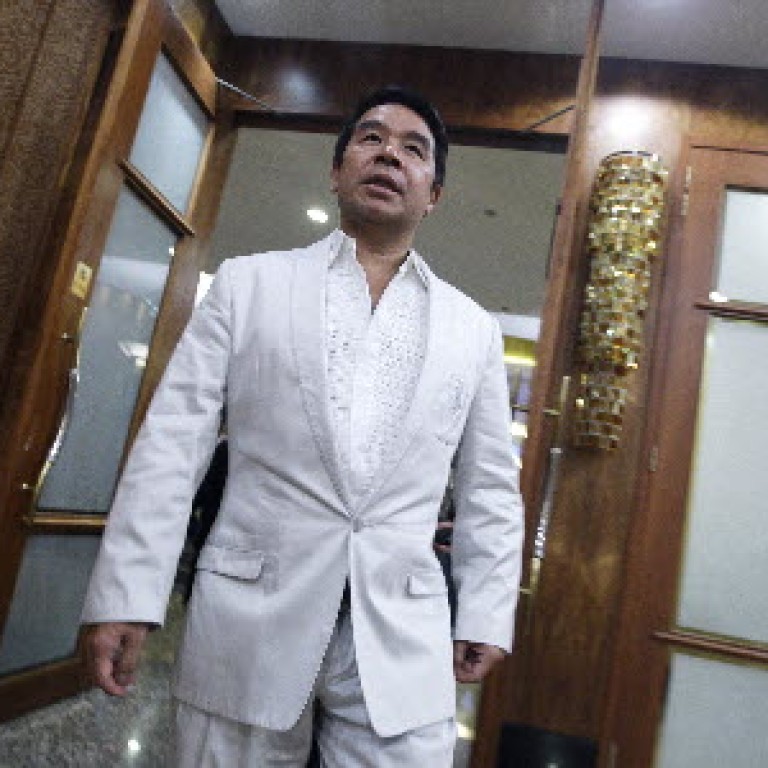Advertisement
Advertisement

Timeline: The trial of Carson Yeung
In the aftermath of a trial spanning nearly nine months, the former owner of the Birmingham City soccer club begins his six year sentence
Carson Yeung Ka-sing, a hairdresser-turned-businessman who was once the majority shareholder of the Birmingham City Football Club, has been jailed for money laundering following a lengthy trial spanning nearly an entire year.

May 2013 - Yeung's trial begins. The tycoon pleads not guilty to five counts of money laundering involving a total of HK$721 million. The court hears that Yeung once reported earning nothing for half a decade, but his income later shot up 300 times in only seven years. Accounting experts look into tens of millions of dollars in cheques that were deposited into Yeung's accounts by Macau casino bosses.
June 2013 - District Judge Douglas Yau Tak-hong rules that Yeung must answer for money laundering charges involving more than HK$700 million. Yeung's defence attorneys begin preparations to call at least six witnesses to testify, but Yeung himself has yet to take the stand.
July 2013 - Witnesses reveal that Yeung had substantial mainland connections, had previously met with Jia Qinglin, one of the highest ranking members of the mainland's Standing Committee, and made a donation of 10 million yuan (HK$12.52 million) to the development of Tibet. Testimonies reveal that the businessman was "passionate about football" and had the intention "to open many training schools on the mainland" after buying Birmingham City Football Club. Yeung decides not to take the stand and his trial adjourns until October.

October 2013 - At the trial's re-opening, Yeung explains that he intended to set up 40 mainland soccer schools as "Chinese soccer was not up to standard". According to Yeung: "Children go to school and learn to play football. When they grow up, they can be sent to Birmingham City Football Club." Yeung attributes his massive income boost to stock dealings, property investments in Southeast Asia, running upmarket salons and "very frequent" visits to casino VIP rooms in Macau. The businessman attests that he accepted cheques from staff members of Macau casinos because the money came from his investment capital in their firms.
November 2013 - The defence's claim that Yeung had made his money through the stock market is challenged by the prosecution, which point out that Yeung suffered a heavy financial loss in 2001 of about HK$15.4 million in stock dealings. Meanwhile, Italian millionaire Gianni Paladini claims that he signed an agreement to buy the Birmingham City club from Yeung but the deal never went through despite weeks of waiting. Yeung openly dismisses this claim and demands that the money laundering trial halt over "unfair" evidence.

December 2013 - The prosecution accuses Yeung of inconsistent testimony, and claims that his evidence is "completely lacking in credibility." The prosecution also accuses Yeung of "often changing his position, and sometimes more than once" during the trial.
February 2014 - Yeung resigns from all his posts with the Birmingham City Football Club. Judge Yau finds Yeung guilty of laundering HK$721 million through five Hong Kong bank accounts and describes the defendant as "not a witness of truth".
March 2014 - On March 7, Yeung is sentenced to six years and convicted of five charges of money laundering using accounts at Wing Lung Bank and HSBC between 2001 and 2007. Judge Yau argues that Yeung's sentence must include an "element of deterence" and that "maintaining the integrity of the banking system is of paramount importance if Hong Kong is to remain an international finance centre."

Post